Resources & Markets
Polymetallic nodules are found on the deep ocean seabed in vast quantities, and are rich in nickel, cobalt, copper and manganese. These metals are essential for the development of the green economy and form critical components of batteries and wiring infrastructure in both the green energy sector (e.g. wind and solar power generation) and for electric vehicles.


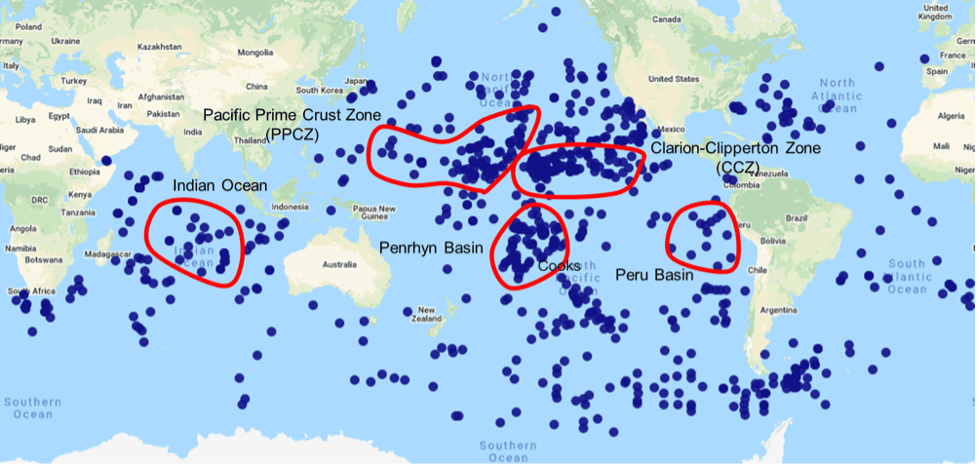
Location of known polymetallic nodules, with the five zones of most likely potential industrial exploration outlined in red. Source: National Centers for Environmental Information (NOAA).
Picture of nodule field. They have formed over millions of years as minerals precipitated from the water around sea-floor detritus. They occur irregularly at depths greater than 4,000 metres. The potato-sized nodules are brown to bluish-black bumps with a dull lustre.
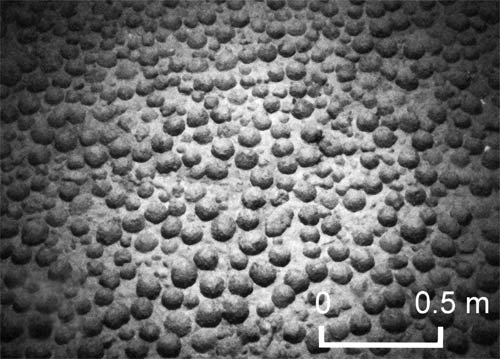

Electric Vehicles (EVs)
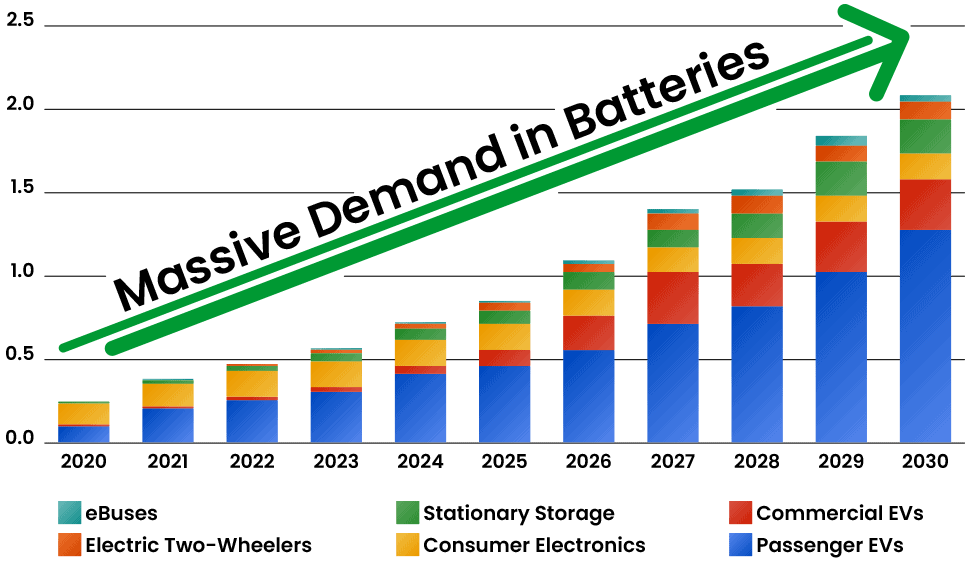
Source: BloombergNEF Electric Vehicle Outlook 2021
Currently around 5% of new car sales are electric. This is forecast to be around 50% by 2030. This growth will put immense pressure on battery metal supply chains, and is expected to lead to a deficit of metals by 2030. As a result, leading automotive manufacturers are accessing metals from increasingly sensitive terrestrial locations (such as rainforests and lowland forests), and are adopting alternatives such as iron-based (LFP) batteries which have a much reduced range. It is forecast that the majority of EV battery cathodes in 2030 will continue to use nickel instead of iron.
Composition of Electric Vehicle (EV) vs Gas Vehicle (GV)
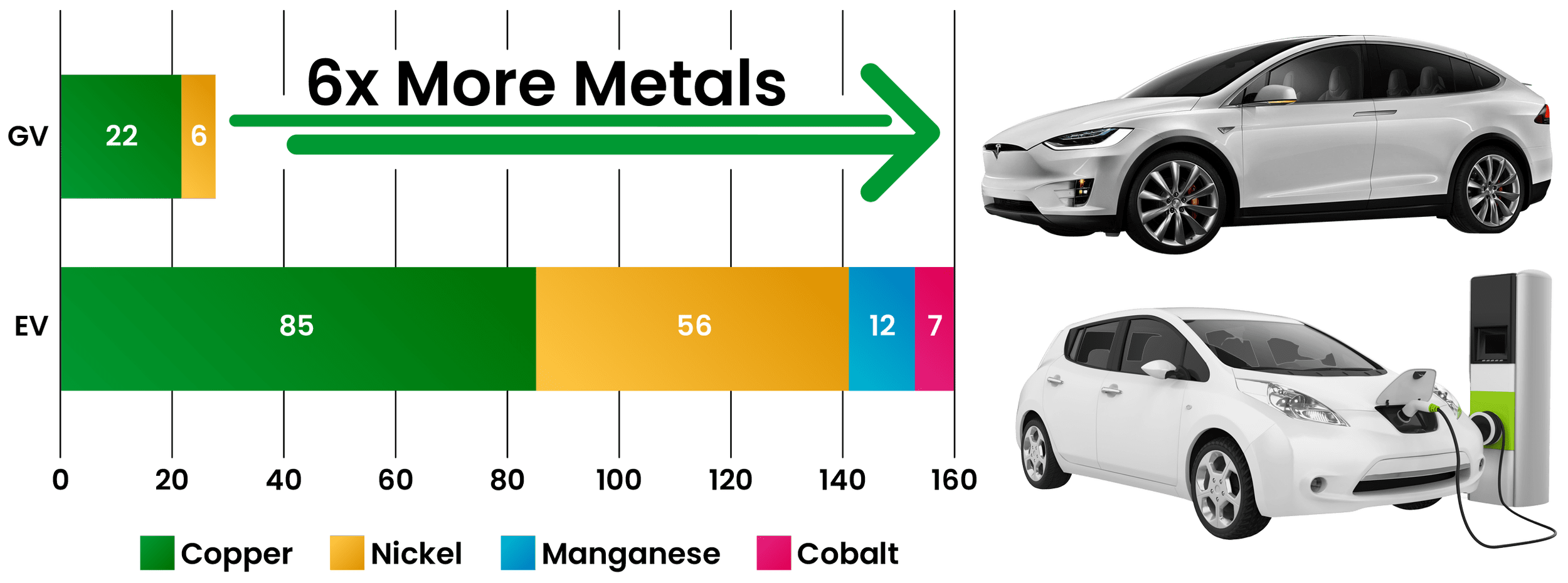
Grid/Renewable Storage
Grid storage need batteries to store the energy when the renewable source is not generating.
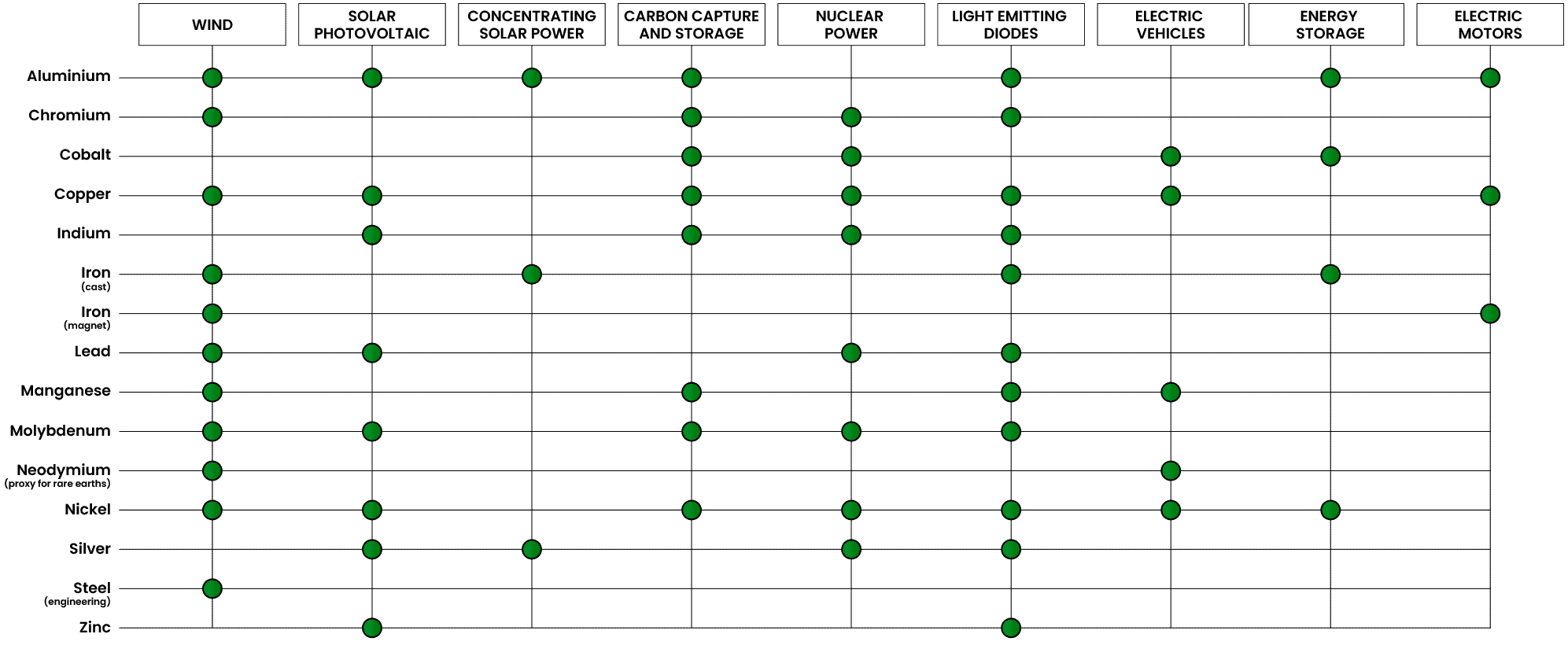

Consumer Electronics
There are more than six billion users of smartphones around the world, and that number is projected to increase. The demand for smartphones and other consumer electronics (tablets, notebooks, etc.) will continue to increase with population increase. At the same time, consumers are becoming more concerned about the supply chain ethics and impacts of their electronics.


Recycling
In time the rate of recycling of batteries will increase, and the current challenges associated with a lack of supply of recyclable metals, the cost of recycling, and the environmental and social impacts of recycling, will all be improved. As part of its pledge to BetterEV.org, Impossible Metals supports the transition to a circular economy, eventually phasing out the need for mining of raw materials. Impossible Metals is developing its Bio-Extraction technology with the aim that it will also be applicable to the battery metal recycling industry, potentially providing a more environmentally responsible and cost effective method for recycling of battery metals.